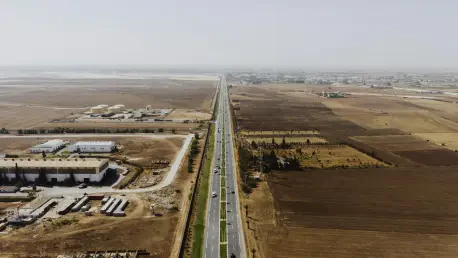Imagine a remote industrial site in the heart of Africa, where a technician faces a complex machinery breakdown under harsh conditions, miles away from expert support, and the challenge of ensuring safety and efficiency in such environments has long plagued industrial operations across the continent. However, a groundbreaking partnership between a leading augmented reality (AR) solutions provider and a South African engineering firm is set to change this narrative. By introducing cutting-edge AR and mixed reality (MR) technology, this collaboration promises to bridge geographical and expertise gaps, enabling real-time support for frontline workers. This development signals a new era for industrial sectors, where digital tools could redefine operational standards, reduce downtime, and enhance safety. As Africa’s industrial landscape evolves, the potential impact of AR technology offers a compelling glimpse into a future of smarter, safer, and more efficient work environments.
Bridging Expertise Gaps with Digital Innovation
The introduction of AR technology in industrial operations across Africa is poised to address one of the most persistent challenges: the lack of immediate access to specialized expertise in remote locations. A notable collaboration between a global AR solutions provider and a South African engineering company has brought forth a platform called RemoteSpark. This tool facilitates secure, low-bandwidth video and audio communication, connecting field technicians with remote experts for real-time guidance. Whether it’s during complex installations, routine inspections, or urgent maintenance tasks, the ability to receive instant support can significantly reduce errors and improve outcomes. The platform’s compatibility with smart glasses and mobile devices further ensures that critical information is accessible hands-free, allowing workers to focus on the task at hand while receiving step-by-step instructions from specialists located continents away.
Beyond just communication, this AR technology fosters a deeper level of collaboration by enabling visual documentation and real-time problem-solving. Technicians in the field can share live views of their environment with experts, who can then overlay digital annotations or instructions directly onto the worker’s field of vision. This not only speeds up troubleshooting but also minimizes the risks associated with miscommunication in hazardous settings. For industries operating in Africa’s often challenging terrains—such as mining, oil and gas, or manufacturing—this represents a transformative shift. The capacity to resolve issues without the need for on-site expert visits cuts down on travel costs and time delays, while also ensuring that operations continue with minimal interruption. As digital tools like these become more integrated into daily workflows, the potential for scaling expertise across vast distances could redefine how industrial projects are managed on the continent.
Enhancing Safety and Efficiency in Harsh Environments
Safety remains a paramount concern in Africa’s industrial sectors, where workers often operate in remote or hazardous conditions with limited resources. AR technology offers a compelling solution by equipping frontline teams with tools that enhance situational awareness and reduce risks. Through platforms like RemoteSpark, workers can access critical data and expert guidance without diverting attention from their immediate surroundings. This hands-free approach, supported by wearable devices, ensures that safety protocols are followed more effectively during high-stakes tasks. Additionally, the ability to record and review operations in real time allows for better training and adherence to safety standards, addressing a crucial need in environments where accidents can have devastating consequences.
Efficiency, too, stands to gain immensely from the integration of AR into industrial operations. The real-time collaboration enabled by such technology minimizes downtime by accelerating decision-making and problem resolution. For instance, a malfunctioning piece of equipment in a distant facility no longer requires days or weeks of waiting for an expert to arrive. Instead, solutions can be implemented almost instantly through virtual support, keeping production schedules on track. This is particularly vital for industries dealing with heat, mass, and fluid transfer applications, where delays can lead to significant financial losses. By combining local engineering expertise with advanced digital tools, companies can offer tailored solutions that not only boost productivity but also build long-term resilience. The impact of these advancements could set a new benchmark for operational excellence across Africa’s industrial landscape.
Paving the Way for Sustainable Industrial Growth
Looking back, the strides made through strategic partnerships to deploy AR technology in Africa’s industrial sector marked a turning point for operational innovation. The collaboration between global tech providers and local engineering firms demonstrated how digital solutions could address longstanding challenges like safety risks and expertise shortages in remote areas. By leveraging platforms that supported real-time guidance and collaboration, industries were able to transform their workflows, ensuring that even the most isolated teams operated with precision and confidence. This era of change highlighted the power of technology to adapt to unique regional needs, creating a model that others could emulate.
As a next step, stakeholders should focus on expanding access to AR tools through training programs and infrastructure investments, ensuring that more workers can benefit from these innovations. Governments and private entities might consider incentives to accelerate adoption, while partnerships could explore ways to customize solutions for smaller enterprises. Addressing bandwidth limitations in rural areas will also be key to scaling impact. By building on the foundation laid by early adopters, the industrial sector in Africa can move toward a future where technology drives sustainable growth, safer workplaces, and unparalleled efficiency.









